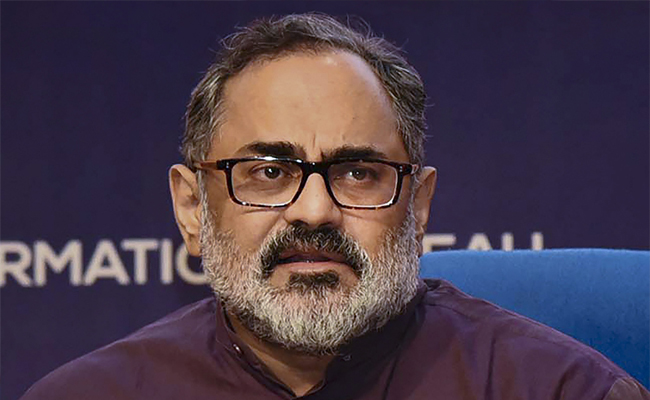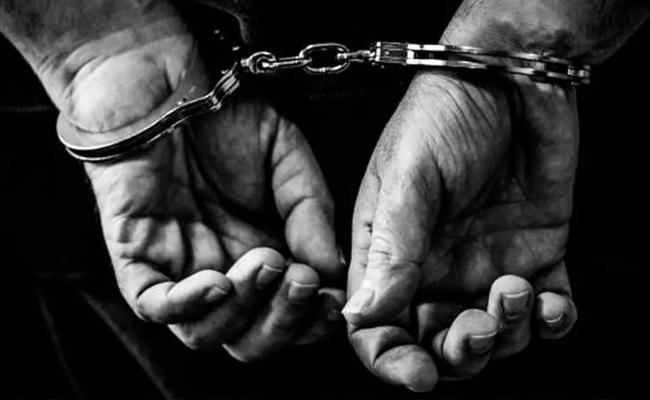Udupi, October 13: A member of Railway Yatri Sangha who was travelling along with his sister, was looted of cash and valuable worth lakhs by strangers after offering him the intoxicating butter milk, in the train on Friday.
Railway Yatri Sangha treasurer Ramachandra Acharya (60) of Kinnimulki in Udupi and his elder sister and wife of Krishna Bhat of Bylur in Karkala, Radhamma (75) have consumed the intoxicating butter milk offered by the stranger in the train and became unconscious. After this, they were admitted to a private hospital in Udupi and got released on Saturday.
After making them unconscious, the strangers looted total Rs 30,000 cash, mobile phone, coins and new cloths worth Rs 2000, from Ramachandra and ear ring, two rings, one gold chain and Rs 15,000 from Radhamma, it is said.
About incident
For religious rituals of his brother-in-law, Ramachandra Acharya, along with his sisters Radhamma, Seema Rao and Tulasi Upadhya have been to the Pejawar Mutt at Nasik in Maharashtra by train on October 7 from Udupi. After completing the programme, they boarded the Mangala-Nizamuddin Express train from Nasik to Udupi on October 11 at 6 am. Among them, Radhamma and Ramachandra were travelling in S-3 coach, while others in S-2 coach. Two strangers, aged between 50-60 years of age, introduced themselves to Radhamma and Ramachandra Acharya. Conversing in Hindi, the strangers introduced themselves as cloth merchants from Delhi and were going to Kerala for business and became close to them.
In the evening, the train stops at Chiplun railway station in Maharashtra. At that time, Radhamma went to toilet and Ramachandra Acharya went outside the train. At this time, both the strangers brought butter milk sachets and offered them to Radhamma and Ramachandra. Yielding to their force, they drank it and fell asleep.
Ramchandra woke up when the train reached Kundapura at around 1.30 am on Friday and noticed that the amount kept in his purse and pocket was looted. He went to another coach and informed his sisters. But Radhamma who consumed the entire butter milk fell unconscious. They informed the railway police by the time they reached Indrali railway station and both of them were admitted to a private hospital in Udupi.
‘After consuming intoxicating butter milk, we both became unconscious. They have looted the cash, mobile and gold ornaments. Since my sister slept on one side, they took one ear ring and left another. Fortunately, gold ornaments kept inside the bag in which old cloths were kept are safe as they did not notice them’, said Ramachandra Acharya.
Let the Truth be known. If you read VB and like VB, please be a VB Supporter and Help us deliver the Truth to one and all.
Thiruvananthapuram (PTI): Kerala BJP president Rajeev Chandrasekhar on Monday hit out at both the ruling CPI(M)-led LDF and the opposition Congress-led UDF, saying that their reactions to the recent conflict in West Asia show that they are supporting Iran rather than standing with the people of Kerala living in the Gulf countries.
He accused both fronts of "playing politics" in the name of religion and appeasement ahead of State Assembly elections, rather than taking a clear stand on the crisis.
It is "surprising" that the Left Democrat Front and United Democratic Front are "supporting" Iran -- which is attacking Gulf countries that economically sustain Kerala and are considered a second home by Keralites, Chandrasekhar said in a statement here.
The BJP leader said Keralites, many of whom depend on jobs in Gulf Cooperation Council (GCC) countries, are anxious about the situation.
He underlined that the first priority should be the safety and security of expatriate workers and their families, not political gains.
His statement comes a day after Chief Minister Pinarayi Vijayan alleged that the United States was displaying "hooliganism" against Iran and accused it of taking "irrational" actions that undermine the sovereignty of nations.
The Congress has also "unequivocally" condemned the targeted assassination of Iran's Supreme Leader Ayatollah Ali Khamenei and said no external power has the authority to engineer a regime change, as such actions amount to imperialism and are incompatible with a rules-based international order.
Chandrasekhar said that the central government is offering help and guidance to Indian citizens in the region, and urged people not to panic.
To assist those affected, the Kerala BJP has opened helpdesks in 30 district offices and launched a toll-free number -- 1800-257-4357 --for Keralites seeking information or support connected to the conflict, the statement said.





